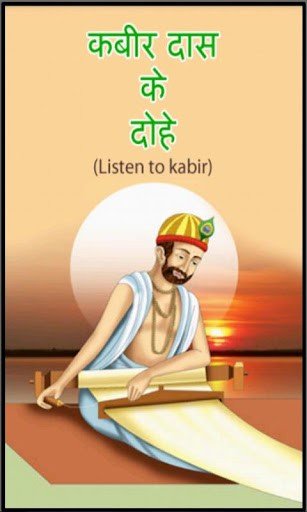

Early texts about his life place him with Vaishnava tradition of Hinduism as well as the Sufi tradition of Islam. Kabir is widely believed to have become one of the many disciples of the Bhakti poet-sant Swami Ramananda in Varanasi, known for devotional Vaishnavism with a strong bent to monist Advaita philosophy teaching that God was inside every person, everything. Ī few accounts mention that Kabir Saheb in the form of a child was found at Lahartara Lake by a Muslim weaver called Niru and his wife Nima who raised him as his parents. In fact, there is a Kabirpanth on the pond today which reinforces this very belief. Many Followers of Kabir Saheb believe that Kabir Saheb came from Satlok by assuming the body of light and incarnated on a lotus flower and claim that Rishi Ashtanand Ji was the direct witness of this incident, who himself appeared on a lotus flower in the Lahartara Pond. There is a considerble scholarly debate on the circumstances surrounding Kabir's birth.
#Kabir ke dohe in hindi guru gobind full#
Generally, Kabir is believed to have been born in 1398 (Samvat 1455), : 14–15 on the full moon day of Jyeshtha month (according to the historical Hindu calendar Vikram Samvat) at the time of Brahmamuharta. Some historians favor 1398–1448 as the period Kabir lived, while others favor 1440–1518.

The years of Kabir's birth and death are unclear. 3.1 Kabir, Guru Nanak and the Guru Granth Sahib.Kabir's legacy survives and continues through the Kabir panth ("Path of Kabir"), a religious community that recognises him as its founder and is one of the Sant Mat sects. To know the Truth, suggested Kabir, drop the "I" or the ego. Kabir suggested that Truth is with the person who is on the path of righteousness, considered everything, living and non living, as divine, and who is passively detached from the affairs of the world.

When he died, both Hindus and Muslims he had inspired claimed him as theirs. During his lifetime, he was threatened by both Hindus and Muslims for his views. He questioned meaningless and unethical practices of all religions primarily the wrong practices in Hindu and Muslim religion. īorn in the city of Varanasi in Uttar Pradesh, he is known for being critical of both organized religion and religions. Kabir Das (1398–1518) : 14–15 was a 15th-century Indian mystic poet and saint, whose writings influenced Hinduism's Bhakti movement and his verses are found in Sikhism's scripture Guru Granth Sahib, Satguru Granth Sahib of Saint Garib Das and Kabir Sagar.


 0 kommentar(er)
0 kommentar(er)
